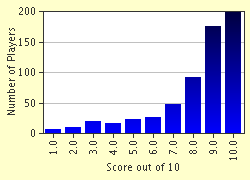Quiz Answer Key and Fun Facts
1. Speaker No 1: "Communal relations can only be improved by making laws which follow the dhamma. All religions, their views and goals, must be taken consideration when one formulates a law. These laws or rules of dhamma must be communicated to the public through edicts and pillars. Personally I am a Buddhist."
Which of the following kings is most likely to be Speaker No: 1?
2. Speaker No 2: "You can never maintain peace by promoting a secular view; one must kill all the infidels. That means there will be only one religion in this country - thus ensuring NO communal violence in this country. If I could imprison my father, hunt down my brother - then would the idol worshippers of India be left alone?"
Which of these rulers is most probably Speaker No: 2?
3. Speaker No 3: "Unlike other emperors of my dynasty, I took a more liberal view towards religion. To maintain peace, one must allow all religions, which emphasize on good values, to flourish! Personally I would like all my subjects to follow "Din-i-illahi" - a religion which I created myself. Some of my favourite ministers were Hindus like Birbal."
Which of these emperors is most likely to be Speaker No: 3?
4. Speaker No 4: "Well, I never had any communal problems during my reign - I was one of the famous kings of an era called 'The Golden Age of India'. Well, I was a staunch Hindu and that can be verified by the coins I issued. I was known in places as far flung as Java! I used to perform the 'Ashwamedha Yagna' many a time. I was quite tolerant of various religions (besides Hinduism) that existed at my time."
Who is Speaker No: 4?
5. Speaker No 5: "Personally I became a ruler in tumultuous times yet I maintained my dignity and never bowed down to the foreign rulers. I was considered one of the greatest Hindu rulers and that too, at a time when the Mughal Empire was at its peak. For me, maintaining justice and treating my subjects equally was more important than any religion!"
Which of these kings is most likely to be Speaker No: 5?
6. Speaker No 6: "Communal problems were never a problem for me; I must say that I was quite lucky that I had a wily minister by the name of Chanakya (or Kautaliya) to help me in this! I founded a great empire."
Who is Speaker No: 6?
7. Speaker No 7: "During my times, both the Moslems and the Hindus were united in their opposition to the British rule. Though I wielded no power as such, I was still considered by my countrymen as the leader of 'First War of Indian Independence'. Like many others, I was let down by a treacherous backstabber in my court! To improve communal relations, I believed that there must be a common cause that binds the religions together!"
Who is Speaker No: 7?
8. Speaker No 8: "I may be one of the lesser members of this panel but my achievements in promoting communal peace speaks for itself. My empire extended from the Hindukush to parts of present-day India. The coins I issued depicted pictures of Greek, Roman, Persian, Hindu and Buddhist Gods. I was instrumental in the spreading of Buddhism to many parts of the world including Central Asia and China."
Who is the speaker No: 8?
9. Speaker No 9: "Though I was an ardent follower of Islam, I was quite secular and promoted other religions especially Hinduism. I followed the path laid down by my father Hyder Ali. I believe that learning about religions and its tenets was important to discovering one's faith. Military-wise also, I was no muck - I was called 'The Tiger of Mysore'."
Who is Speaker No: 9?
10. Speaker No 10: "A Hindu king, I actually patronised other religions notably Buddhism. In 643 A.D, I convened a special religious assembly which was attended by scholars from a number of religions. I even sent a Buddhist ambassador to the then Chinese king. I am from the Thaneshwar kingdom."
Who is our last speaker for the day?
Source: Author
ace_sodium
This quiz was reviewed by FunTrivia editor
Exit10 before going online.
Any errors found in FunTrivia content are routinely corrected through our feedback system.


